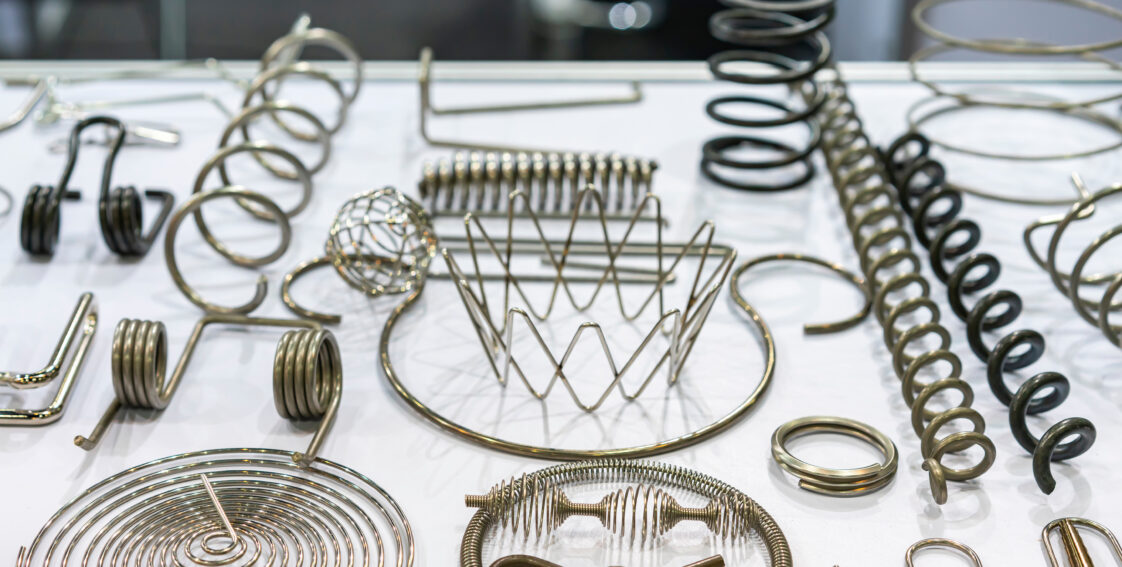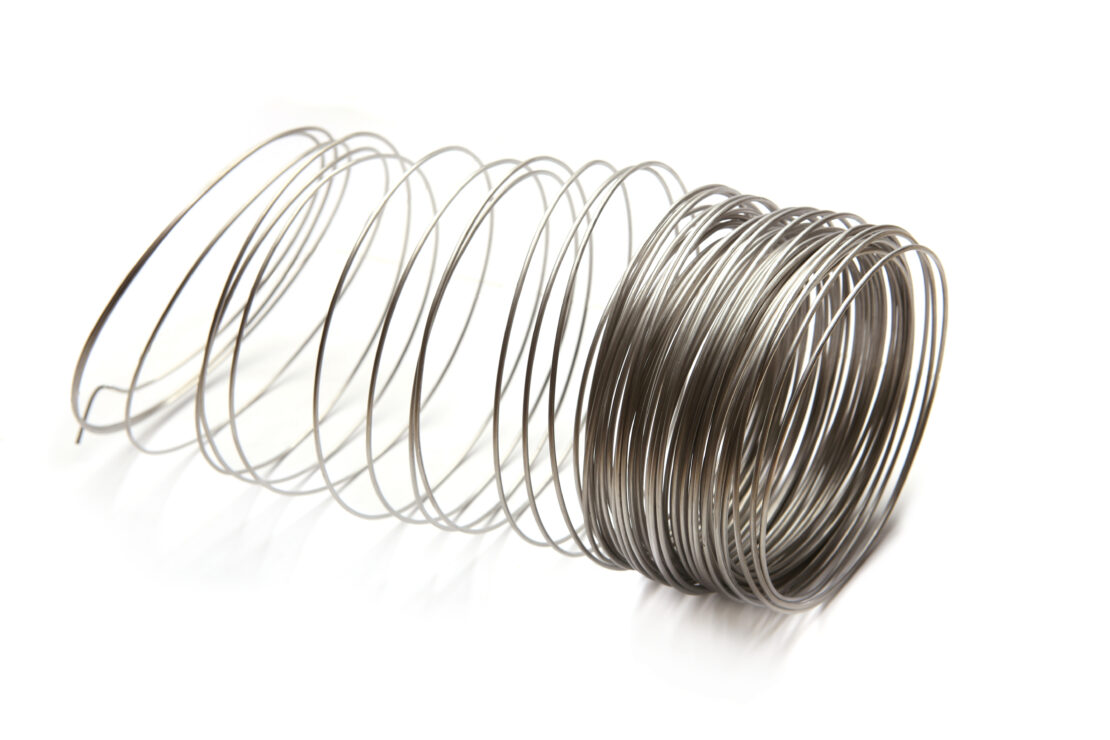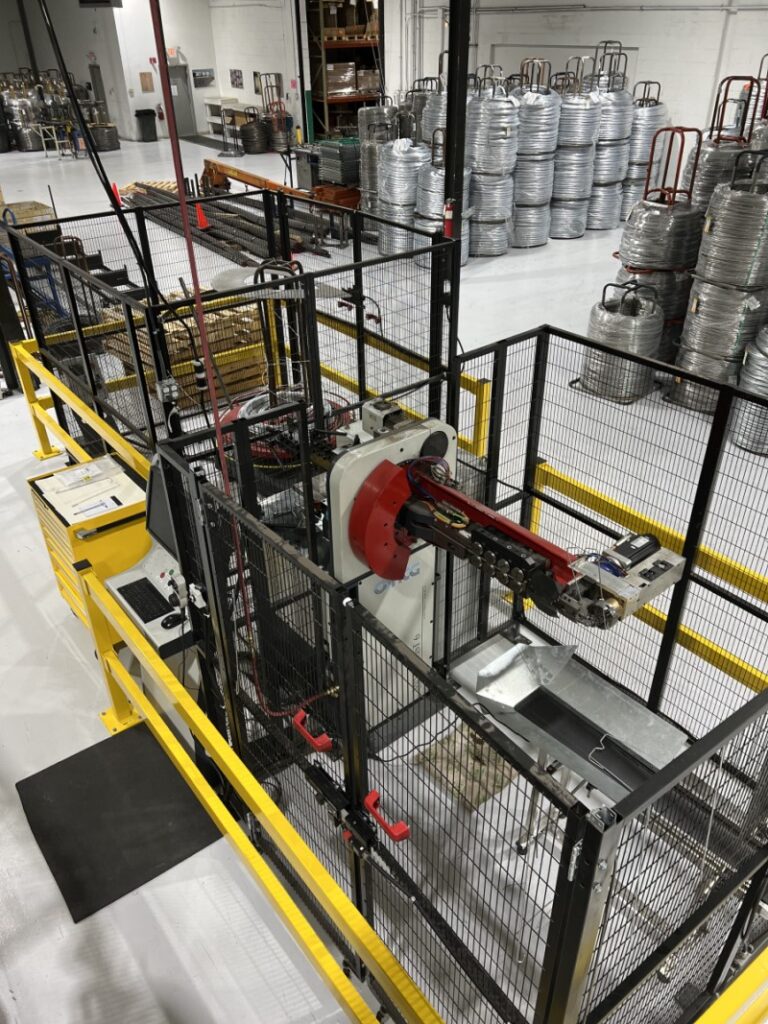
Everything You Need to Know About Custom Wire Forms
Custom wire forms are shaped wires used in countless fastening, securing, and supporting applications in many industries, including manufacturing, landscaping, lobster fishing, and food processing. They are made by manipulating precisely cut lengths of metal into complex 2D and 3D shapes and can be manufactured in many sizes and configurations.
The application type will determine the wire form’s size, design configuration, and material construction.
Materials Used to Produce Formed Wire Products

Both ferrous and nonferrous metals are suitable for custom wire forming. Common materials include galvanized steel, low, medium, and high carbon steel, stainless steel, brass, copper, and aluminum.
Many applications need good corrosion resistance, while others need high strength, high temperature resistance, fatigue resistance, or a combination of properties. Key characteristics of the materials used for formed wire products are summarized below.
Galvanized
Galvanization refers to applying zinc to a steel surface. The zinc forms a sacrificial layer that protects against corrosion. The process is performed either by plating or dipping in hot zinc. All grades of steel and iron can be galvanized.
Low, Medium, & High Carbon Steel
Steel is iron with a small addition of carbon. Higher carbon percentages increase strength but make the metal harder and less ductile. Unlike stainless steel, carbon steels oxidize quickly in air, forming a layer of rust that will flake off.
Stainless Steel
Stainless is a steel alloy with high concentrations of chromium and nickel. Together, chromium and nickel contribute to stainless steel’s high corrosion resistance and strength. Some stainless grades have extremely high tensile strengths but can lack ductility. Use stainless when your wire hooks or other products will undergo repeated heating and cooling cycles, as is the case in food processing and health care, but ask our specialists at King Steel Fasteners for advice on the grades that will work best.
Brass
Brass is composed primarily of copper and zinc, with trace amounts of other elements. The tensile strength in brass is low, but it is readily worked and has good corrosion resistance.
Copper
Known primarily as an electrical conductor, copper is also used in plumbing and heater coils. It’s soft, with good ductility but low strength. It corrodes in the presence of moisture to develop a green patina.
Aluminum
Aluminum generally has good ductility and is available in many grades in conditions with properties that vary widely. Additionally, its strength-to-weight ratio (or specific strength) is higher than steel. Aluminum is also electrically conductive, which may be beneficial in applications like electrostatic paint spraying.
How Wire Forms Are Created
Wire is usually supplied in coils, so the first step in forming wire products is to put it through a straightening process. Particularly hard metals will also undergo an annealing heat treatment to soften and make them more consistent throughout their length.
Most parts are formed by cutting to length, then gripping one end while the rest is wrapped around posts on a rotating table. Unless the form is ungripped, repositioned, and regripped, this only produces 2D wire forms.

Using CNC Benders to Create Wire Forms
At King Steel Fasteners, we recently installed a CNC bender that significantly expands our capabilities, especially for small-quantity custom wire form orders. In a CNC bender, coil is fed from one side, passing through a straightening zone before reaching the mandrel. The required length is fed out, then grippers take a firm hold of the end of the wire. As the wire rotates, the grippers bend the wire to the required 3D shape.
Two major advantages of our CNC bender are:
- No Material Waste: The end of one wire form becomes the start of the next.
- High Precision: The CNC controls, drives, and motors are extremely accurate and repeatable.
Why Choose King Steel Fasteners for Your Custom Wire Forming
At King Steel Fasteners, we’re committed to ensuring you receive the high-quality products and services you need. We achieve this through a combination of dedicated and experienced staff, a formal ISO 9001 quality management system, and advanced machinery, like our CNC bender.
With three decades of experience, we have the know-how to advise you on how best to satisfy your application challenges. Whether it’s material questions, advice on the tools to use, or help with fastening options, we’re here to help you.
Order Your Custom Wire Forms Today
Experience, proven capabilities, and a commitment to customer satisfaction—that’s what keeps our customers coming back to King Steel Fasteners.
We can produce custom wire forms up to .250 inches wide and 29 inches long in multiple shapes, including V-hooks, CV hooks, S-hooks, and gabion basket struts. Please note that we currently only produce custom wire forms from galvanized steel and stainless steel.
Please contact us today if you have questions about our capabilities or want to request a product quote.
